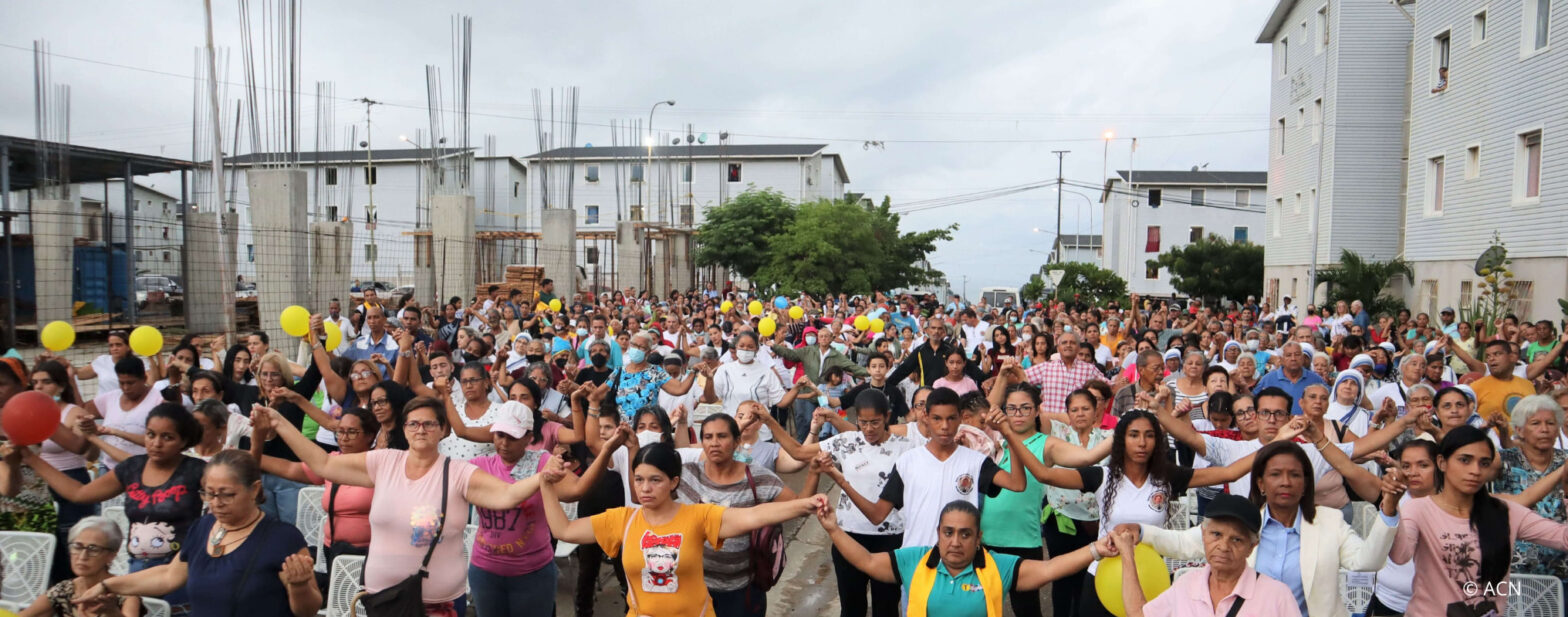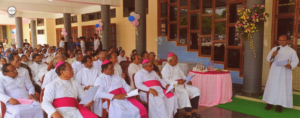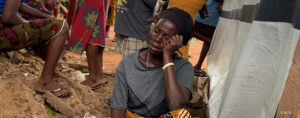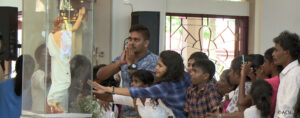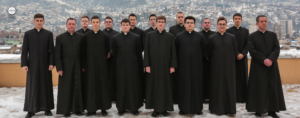Ten years after its creation, a neighbourhood named after Hugo Chávez finally has a parish church.
Ciudad Chávez is a neighbourhood in the Venezuelan city of Vargas, in La Guaira Diocese, just a few kilometres away from Maiquetía (Simón Bolívar) International Airport. The neighbourhood was built in 2013, as part of the social program of then President Hugo Chávez, and involved the construction of around 6,000 apartments for over 20,000 residents, under the auspices of the government’s Great Housing Mission Venezuela (Gran Misión Vivienda Venezuela-GMVV) program.
Despite the fact that the settlement was designed to be a new Nowa Huta—a socialist city in Poland with the task of forging a Godless community—, one decade on, Ciudad Chávez is seeing the inauguration of its first church. It is one of over 35 large popular urban planning projects across the country, but it will be the first to have a parish. “Christ wasn’t supposed to be present in this neighbourhood. That was the idea. Ten years later, Christ will be incarnate and living amongst us,” says the Salesian Bishop Raúl Biord Castillo, who has headed the Diocese of La Guaira since 2014, in an interview with Aid to the Church in Need (ACN).
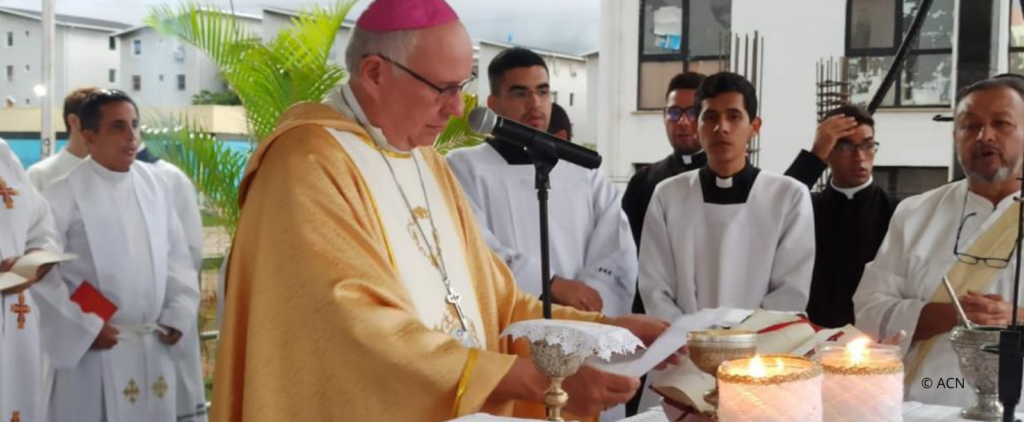
Paraphrasing Dostoevsky, the bishop says: “No man can live without God. If he does not believe in God, he will create an idol to worship,” adding that “the creation of this parish has a deep meaning. You cannot remove religion from the life of the people. Man is not just flesh; he is body and soul. Pure materialism impoverishes humanity.”
Venezuela has witnessed much tension directed at the Church by the government and there has been no shortage of difficulties. “Some may reproach us for having gone along with a project that includes government support, but for ten years the community has been celebrating Mass in the streets. The people wanted to have a temple where they could meet. As a bishop, I am first called to be a shepherd and I cannot leave 20,000 souls without spiritual nourishment,” Bishop Biord tells ACN, one of the organizations that helped fund the construction project.
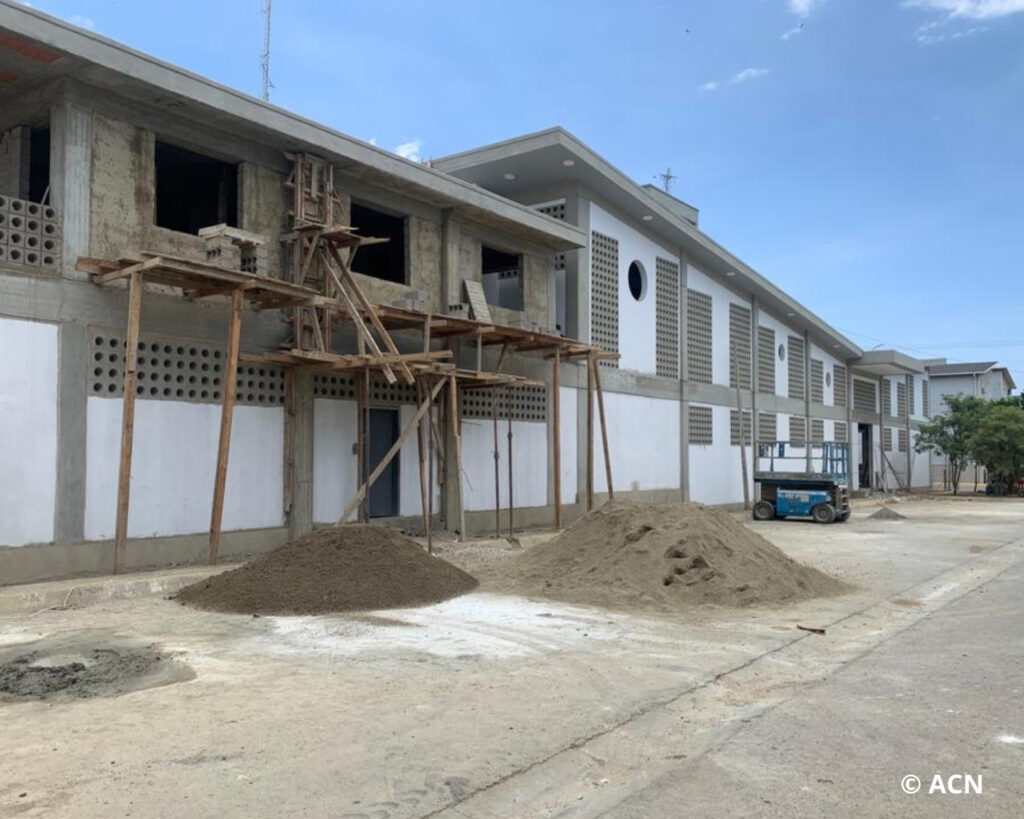
Faith transcends politics
Some have labelled the church Nowa Huta, a reference to the Arka Pana (Ark of the Lord), which was seen as an example of Polish resistance against communist tyranny and struggle for religious freedom, led by the then archbishop of Krakow, Cardinal Karol Wojtyla, who would go on to become Saint John Paul II. That project was also supported by ACN, between 1967 and 1977.
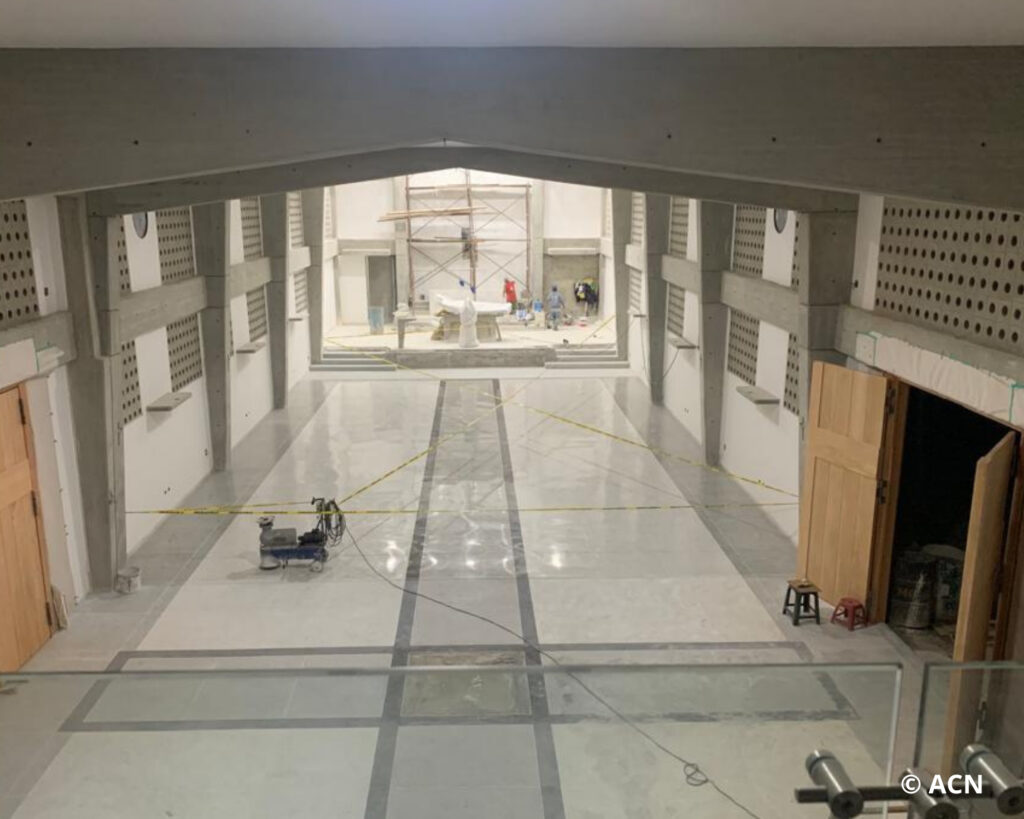
However, even though the creation of neighbourhoods in which the Church was not welcome does remind one of the Soviet intentions, the story of the parish in Ciudad Chávez is different. In Poland, the communist government aggressively opposed the project, which took almost 20 years to complete, including nine years just to obtain the construction permit. “We have had the support of many parties to make this possible. Faith transcends politics, and unites people of very different persuasions,” the bishop of La Guaira explains.
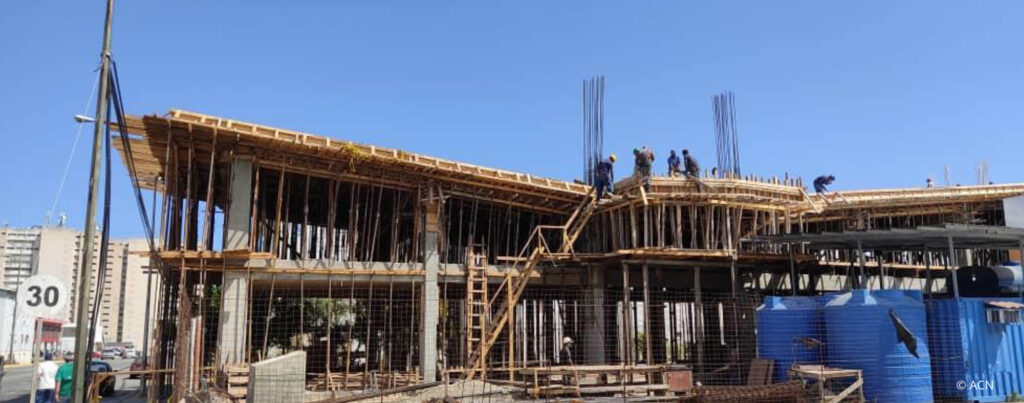
“Amongst the government representatives there are atheists, some of whom are militant, and others less so, but not everyone is like that. There are also Christians who live their faith with conviction. In our case, we have not faced any obstacles or difficulties. On the contrary, we were met with wide support. For me, it is a miracle that we managed to build the church so quickly. Despite the difficulties the country faces – the economic situation, lack of materials, problems and disparities that the construction could have caused – we got it completed in 15 months. I thought it would take much longer than that. It has been a miracle of God to be able to include people with such a wide range of opinions,” the bishop insists.
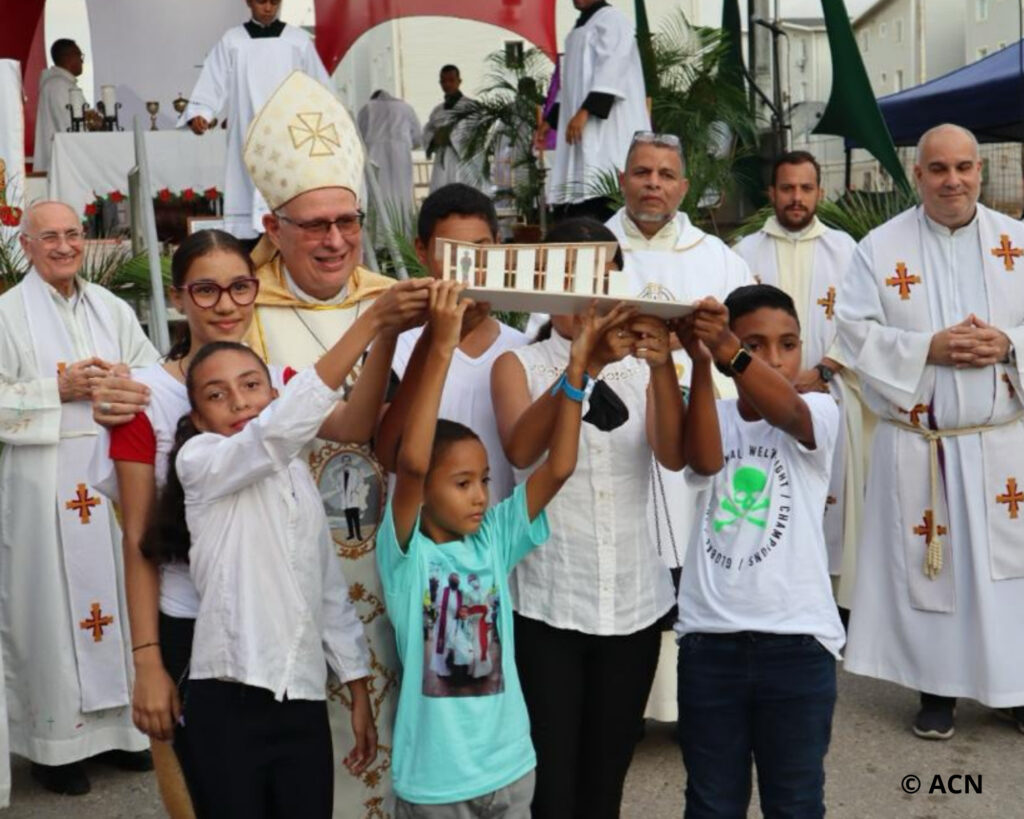
First shrine dedicated to Blessed José Gregorio Hernández
This new parish church, which is dedicated to Saint Óscar Arnulfo Romero, a Salvadorean martyr bishop, will also host a diocesan shrine dedicated to the Venezuelan Blessed José Gregorio Hernández, known as the “doctor of the poor.” The church altar will include relics of both men. Following the example of these lives of dedication and service to those most in need and neglected in society, the new parish will also include a soup kitchen in the back and a training centre aimed at fostering a sense of community. This is an idea that the bishop believes to be very important in a country such as Venezuela, “where there is so much social and community division.”
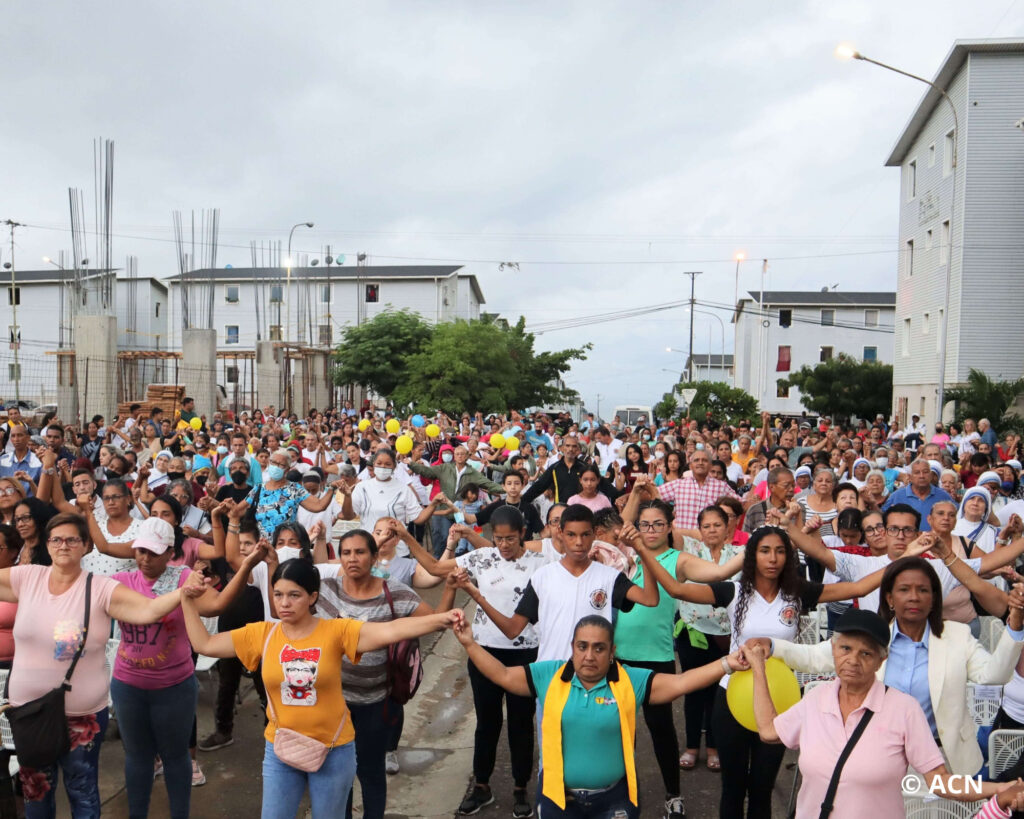
José Gregorio was beatified on April 30, 2021 in Caracas, and this will be the first shrine in the country purposely built for his veneration. The shrine will be quite large, so as to host pilgrims. Several local artists contributed to the building, and an image of the lay doctor’s characteristic sombrero is included in the decoration, in a central location of the floor. The stained-glass windows and images of saints were also made by Venezuelans. A three-metre statue of the resurrected Christ occupies a central position, “and to underline the Christo-centric nature, the tabernacle symbolizes the entire world being embraced by the Cross, with the Eucharist in the middle,” Bishop Biord explains.
106 children prepare for the sacraments
The project in Ciudad Chávez was made possible thanks to the support of the national and regional governments, of private benefactors, charities such as ACN, and of course the local community, the support of which was crucial since it deeply desired to build the church.
Since the beginning, many faithful committed to the project and prayed constantly for it to become a reality. Even before the parish existed, there was already intense pastoral activity. “In August 2022, 73 young people from the diocese carried out an evangelization mission. Now the 106 children who are preparing for First Communion and Confirmation will be able to receive the sacraments in a beautiful new church,” says the very happy bishop.
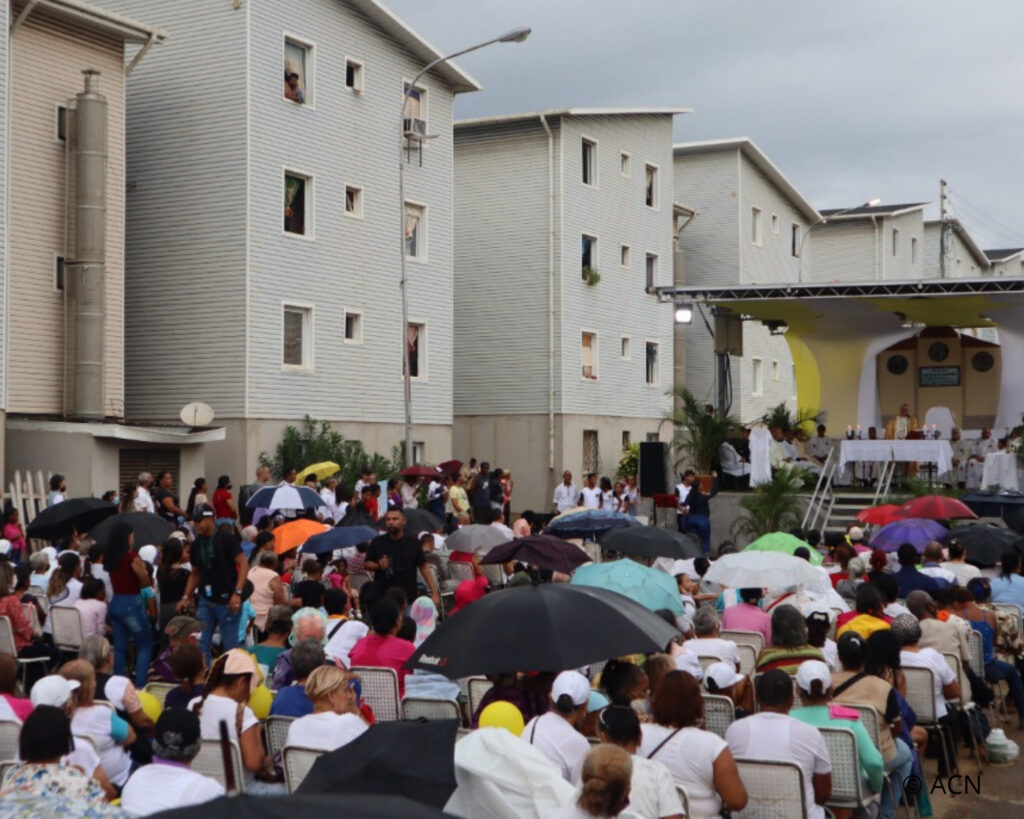
“This is the first parish Church in Venezuela to be built in the government’s social neighbourhoods. It was planned as a solid and long-lasting building, but also as a support for popular devotion and prayer. It is dedicated to God, and built out of love, and with love.” Though it may seem paradoxical to build a church in a country undergoing such a difficult economic crisis, the bishop explains that “the church, the temple, is a very important place for us Venezuelans. It is a place where the community comes together and meets. In a secularized world, such as in the West, this may be difficult to understand, but here we need this place of prayer to nurture faith and hope. Besides, the number of faithful is growing. The people are hungry for God.”
“During my term as bishop, we have built nine churches. Some of them are very small, but all of them have been deeply desired by the communities,” he says, adding, with a twinkle in his eye, that “it may seem like a lot, but we still need to build three or four more, and we are counting on your help!”

